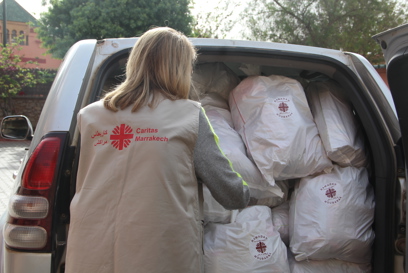
Children looking at the damage from the earthquake that struck the Herat province, Afghanistan. Photo: CRS
The humanitarian crisis in Afghanistan has become one of the world’s most severe, with 24.4 million people in need of urgent humanitarian assistance due to economic collapse, political instability, and long-term drought.
The country is now facing winter, knowing that last year brutally cold conditions withered crops and created a hunger crisis. It is estimated that 97% of the population are being pushed into extreme poverty, with two-thirds of households finding it difficult to meet basic food and non-food needs.
This is all before two devastating earthquakes struck the Herat Province on the 7th and 11th of October.
The earthquakes have resulted in over 2,000 deaths, with thousands more injured and many displaced. Buildings have been damaged and destroyed, and hospitals overwhelmed, with this natural disaster compounding decades of crises in Afghanistan. Scarce resources are coming under even more pressure, so Caritas Australia is supporting partners on the ground as they respond to the urgent need for emergency shelters, clean water, medical supplies, and food and other essentials.
Long-term support is also being offered outside of the earthquake response, to help address the ongoing threat of starvation. This support includes emergency cash assistance to families living in the most drought-affected villages so they can purchase food rations and seeds to plant crops. Training sessions on simple, low-cost livestock management practices are also hoped to help reduce disease, improve livestock health, and increase milk production so families can rely less on external sources of food.
Additionally, education, care, and assistance are being offered through community-based schools in rural Afghanistan to stem the negative impact of educational disruptions and school closures on the education of children, and especially girls.
Without urgent action, the current humanitarian crisis could lead to even more deaths than seen during the war.

















